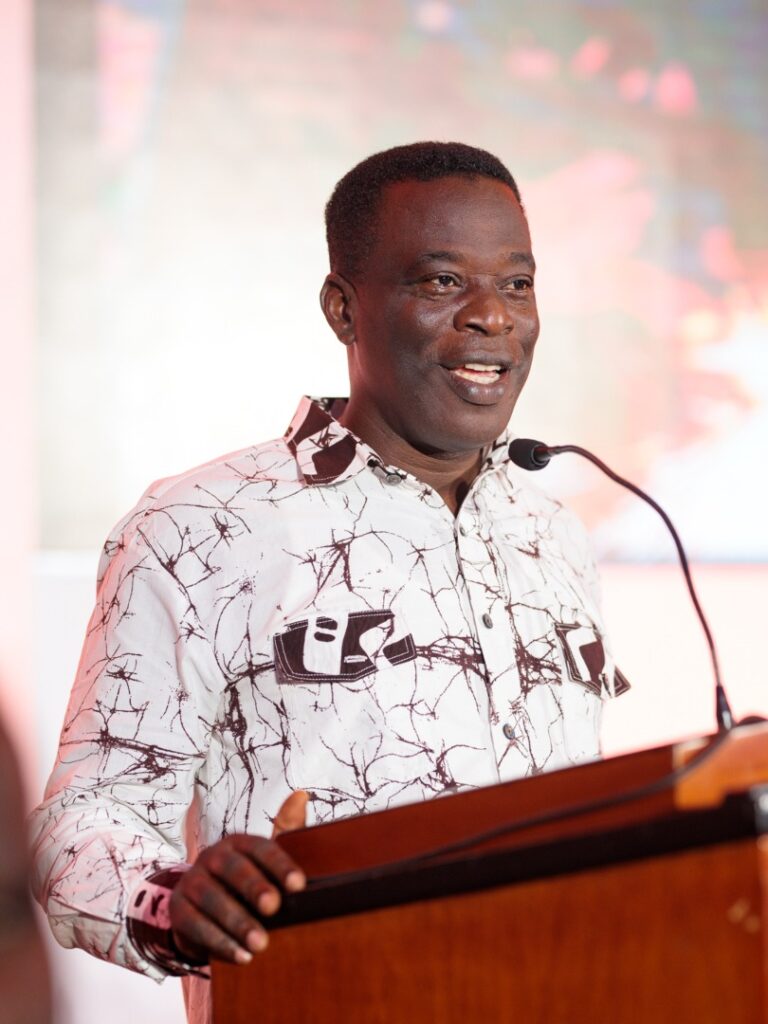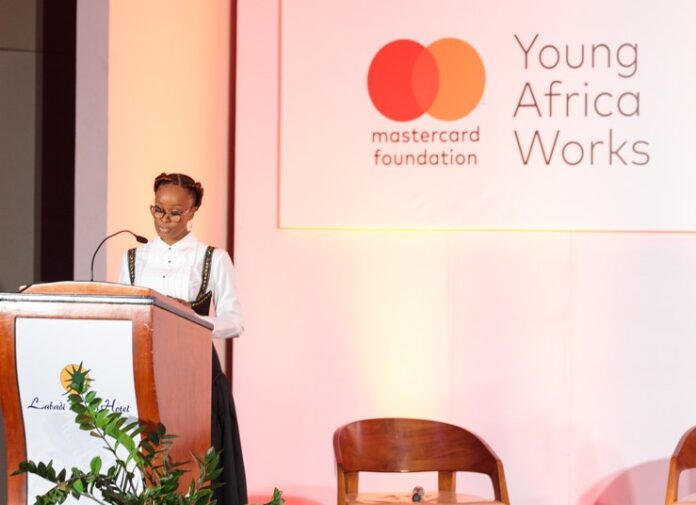…As Design and Technology Institute holds 2nd stakeholder conference on youth employability and precision quality
Accra – June 23, 2021 – A multi-stakeholder dialogue has been organised in Accra by the Design and Technology Institute (DTI) in collaboration with the National Development Planning Commission (NDPC) to commence the development of a national policy for precision quality (PQ) training in Ghana.
The consultative conference, held under the theme ‘Unlocking the Skills and Competencies of Young People for Quality Jobs in Ghana and the Globalized Labour Market’,brought togetherkey state and non-state stakeholders including the Ghana Standard Authority (GSA), Commission for Technical and Vocational Education and Training (CTVET), Association of Ghana Industries (AGI), academia and Master Craft Persons to provide input into a national policy on precision quality as a key component of the TVET education in Ghana.
The conference also saw stakeholders from the fields of construction, design, the medical sector, digital skills and artificial intelligence and the clothing industry share their views on the role precision quality played in their respective fields and how a national policy would stimulate youth employment in diverse fields. They made a clear case for public private partnerships to advance training and skills development for young people.

As part of the conference, participants were taken through the findings of a baseline research commissioned by DTI to help gather relevant data on the State of TVET education in Ghana. They discussed their expectations towards the crafting of a comprehensive long-term policy strategy that will ensure effective and efficient implementation of precision quality in industry and academia.
Ghana’s youthful population, when fully harnessed, provides a great opportunity for the country’s labour market. Promoting quality education, skills training linked to the needs of industries and entrepreneurship among the youth is fundamental to achieving sustained economic growth and decent jobs (SDG 8), no poverty (SDG1) and zero hunger (SDG2) by end of 2030. Harnessing Ghana’s demographic dividend provides a clear path to economic development.
Establishing a National Precision Quality Policy will create thousands of sustainable jobs and work opportunities for young Ghanaian women and men. It will integrate the CTVET accredited precision quality curriculum into the learning outcomes of senior high schools, technical universities and workshops of Master Craft persons ensuring standardisation across board.
A national policy on PQ will also ensure that students and apprentices are assessed by PQ experts for certification, after completion of course modules, to provide the basis for hiring and inform salaries and benefits as well as promotions and career progression.
The policy will create a system that empowers the public to demand quality goods and services from artisans and other industry players to drive compliance and quality of service. The recognition of the importance of research on skill needs, youth employment, and development of the industry will guide and enhance PQ development in Ghana to meet industry demands at a global level.
The conference forms part of a three-year “Transforming youth TVET livelihoods for sustainable jobs’’ partnership between DTI and the Mastercard Foundation, as part of the Foundation’s Young Africa Works strategy in Ghana. The program will provide 40,000 direct and indirect work opportunities for young people in the country.
In her remarks, the Chief Executive Officer of DTI, Ms. Constance Elizabeth Swaniker, commended the Mastercard Foundation for their immense role in the implementation of the PQ programme and other stakeholders for their tremendous support so far for the soon-to-be-developed National Policy on Precision Quality.
She said, “We will continue to engage with all stakeholders in our collective effort to support the national agenda in addressing the skills gap challenge facing academia and industry and provide the basis for the creation of sustainable jobs for the youth through TVET programmes. We look forward to the kind of collaboration fostered through this conference as we shape and create a national policy on PQ Training for Ghana”.
“The skill development constraints identified are the limited number of skilled industrial personnel and the mismatch to industrial needs. Our proposals for the medium-term would be to ensure improved skills development for industry by transforming the apprenticeship training model from a supply-driven approach to a market-demand model. These would help consolidate our gains in skills training and position our youth for the future of work”, said Dr. Kodjo Mensah-Abrampa, Director-General of NDPC.
As part of the programme, several activities have been initiated among key stakeholders to tackle issues of precision quality in service delivery in Ghana.
The Minister for Employment and Labour Relations, Hon. Ignatius Baffour-Awuah in his address was emphatic that one sure way to facilitate the development agenda of the nation is to have a highly skilled and strongly motivated labour force. He indicated that the COVID-19 pandemic has accelerated the process for nations and organizations to plan and prepare for the future of work, to ensure that they have people with the requisite skills and knowledge to produce world-class goods and services. “The widespread adoption of precision quality in training and practice of our skilled labour would greatly contribute to value addition of the Ghanaian labour force and raise the quality of local products and services to international standards.”
“As a nation we need to prepare to adapt to the changes that comes with the future of work. The world of work will change; the nature of work will change but TVET will continue to be relevant, we only need to nurture and develop these talents we have to meet global standards in the not-too-distant future.” he added.
About Design and Technology Institute
The Design and Technology Institute (DTI) is a state-of-the-art Technical and Vocational Education Training (TVET) for young people. It was officially launched in September 2019 to provide the platform for students from various Universities, Polytechnics, Technical and Vocational Institutions to gain industry experience by working closely with artisans on a factory floor, supported by experienced instructors. The mission of the Institute is to transform skills training for young people in Ghana and across West Africa.
The Institute offers scholarships to needy but brilliant students in partnership with the Mastercard Foundation under their Young Africa Works strategy in Ghana. The campus is located at Mempeasem, East Legon behind Ghana Meteorological Agency (Digital Address: GA-484-6124).
About the Mastercard Foundation
The Mastercard Foundation works with visionary organizations to enable young people in Africa and in Indigenous communities in Canada to access dignified and fulfilling work. It is one of the largest, private foundations in the world with a mission to advance learning and promote financial inclusion to create an inclusive and equitable world. The Foundation was created by Mastercard in 2006 as an independent organization with its own Board of Directors and management.
For more information on the Foundation, please visit: www.mastercardfdn.org
About the Young Africa Works Program
Young Africa Works is the Mastercard Foundation’s strategy to enable 30 million young people, particularly young women, to access dignified and fulfilling work by 2030. It is estimated that by 2030, Africa will be home to the world’s largest workforce, with 375 million young people entering the labour market. With the right skills, these young people will improve their lives and the lives of their communities, contributing to Africa’s overall competitiveness.
The Young Africa Works program is currently being implemented in seven African countries in collaboration with governments, the private sector, business leaders, educators, and young people. Countries involved in the first phase of the strategy include Rwanda, Kenya, Senegal, Ethiopia, Ghana, Nigeria, and Uganda.








































